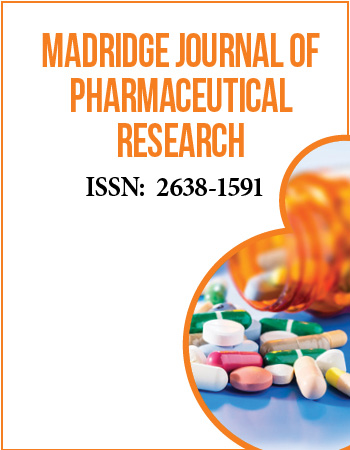2nd International Conference on Pharma & Nutrition, Health and Aging
August 1-2, 2019 Valencia, Spain
The Global Food, Alcohol and Tobacco Index: Capturing Synergistic Public Policy Effects on Non-Communicable Diseases
Columbia University, USA
Reducing the burden of Non-Communicable Diseases (NCDs) is critical to achieving greater economic and social development. Lowering rates of Diabetes, Cardiovascular Diseases, Chronic Respiratory Diseases and Cancer (NCD4) presents significant challenges, while prior analyses of policy effects on NCDs have the benefit of Single Legal Interventions Little is known about Potentially Synergistic Effect of Multiple Policies.
Study: It aims to develop a composite measure of NCD laws that characterizes National Policy Landscapes in relation to the Three Primary Modifiable Risk Factors for NCDs. The Global Food, Alcohol and Tobacco Index (“GFAT Index”) will measure the extent to which countries have adopted evidence-based Packages of NCD Laws that regulate Food, Alcohol and Tobacco and quantify the strength of these policies on the basis of substantive content.
Methods: We constructed the GFAT Index by a) Aggregating Primary Legal Data from 2010 and onward in publicly available and proprietary Legal Databases for each country, b) Developing an Integrated Coding Guide that quantified the relative strength of these policies based on best available evidence and c) Conducting Qualitative Content Analysis with NVIVO on Legal Data. Final Index scores were assigned after reconciling outstanding differences in coding.
Results: All countries had at a least One Cluster of NCD laws that established Alcohol and Tobacco purchasing restrictions (i.e. minimum age, licensing). Low efficacy clusters of food laws appeared in two countries, high efficacy clusters of food laws were present in three countries. Any cluster (low, intermediate or high efficacy) of NCD laws that covered all three policy areas only appeared in three countries.
Discussion: No Research to date has captured NCD Laws as clusters with depth in a Cross-National Context. The GFAT Index advances understanding of the NCD Policy Landscape and Highlights need to introduce High Efficacy Clusters of Food Laws in developed and developing Countries.
Biography:
Dr. Sara E. Abiola Graduated from Harvard Universityʼs PhD Program in Health Policy, Harvard Law School and Yale College with a BA in Psychology and International Studies. Her Research Focuses on the Politics and Effects of Public Health Laws on Population Health with an Emphasis on Non-Communicable Diseases and Food Laws. She has Co-Authored Publications in the New England Journal of Medicine and Health Affairs and contributes to Public Health Conversations on NPR Radio and Vox. She continues to explore the Relationship between Law and Public Health through Projects Funded by the National Institutes of Health and the Robert Wood Johnson Foundation.


